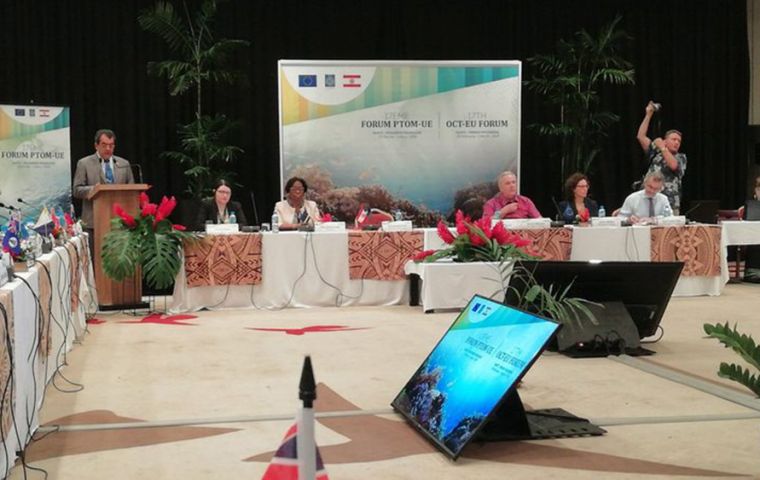MercoPress. South Atlantic News Agency
EU discusses future partnership of Overseas Territories in Tahiti
 All overseas territories are islands, located from the tropics to the poles, in the Atlantic, Antarctic, Arctic, Caribbean, Indian Ocean and Pacific
All overseas territories are islands, located from the tropics to the poles, in the Atlantic, Antarctic, Arctic, Caribbean, Indian Ocean and Pacific At a meeting on Friday in Papeete (Tahiti) in French Polynesia, the EU discussed its future partnership with the Overseas Countries and Territories and signed five cooperation programmes with them totalling €44 million.
The Overseas Countries and Territories, 25 in number, are former European colonies and associated with the EU since 1957. French Polynesia, where the meeting took place, includes Moruroa, an atoll where France undertook nuclear weapon tests in the past.
They do not form part of EU territory or the Single Market and are not bound by EU law. However, they enjoy a preferential trade status, with duty- and quota-free access to the EU market.
”As EU outposts in some of the remotest parts of the world, the EU Overseas Countries and Territories are of strategic importance for our planet’s sustainable development and the biodiversity conservation in particular,” said Neven Mimica, Commissioner for International Cooperation and Development, at the meeting.
All overseas territories are islands, located from the tropics to the poles, in the Atlantic, Antarctic, Arctic, Caribbean, Indian Ocean and Pacific. They are not sovereign countries but depend to varying degrees on the four EU Member States with which they maintain special links – Denmark, France, the Netherlands and the United Kingdom.
Greenland, the largest island in the world, is an autonomous country belonging to Denmark. About half of the islands are connected with UK and will lose their special status with Brexit. In 1982, UK and Argentina went to war over the Falkland Islands.
Most islands are small and remote and particularly vulnerable to climate change, natural disasters and various other challenges to their environment and biodiversity. That is why the EU programs focus on these areas specifically.




Top Comments
Disclaimer & comment rulesCommenting for this story is now closed.
If you have a Facebook account, become a fan and comment on our Facebook Page!